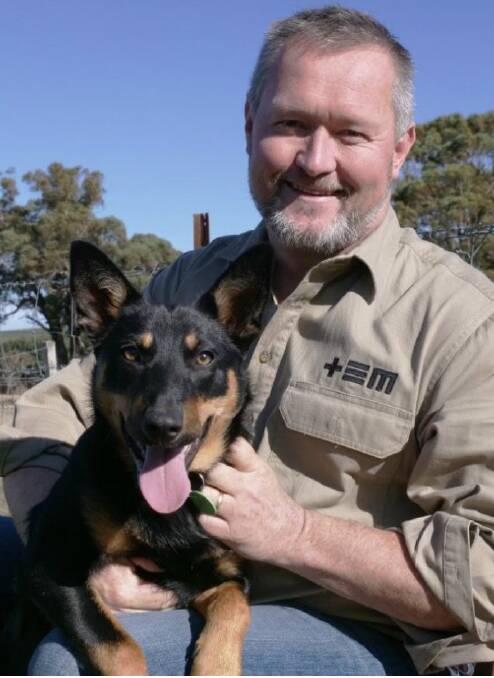
Australia's national herd and flock is in a strong rebuilding phase and red meat exports are booming.
Subscribe now for unlimited access to all our agricultural news
across the nation
or signup to continue reading
But Thomas Elder Markets analyst Matt Dalgleish says there are a few risks producers need to keep front of mind.
This included Foot and Mouth Disease and Lumpy Skin Disease on Australia's northern doorstep, labour shortages across the supply chain and that another drought was never far away.
Speaking at Meat & Livestock Australia's Meat Up Forum in Naracoorte earlier this week, he said the prospects for sheep and lamb exports were "really rosy" particularly in the United States where consumers have developed a big appetite for Australian lamb.
In 2021, 23 per cent more volume exported than average and it has continued into 2022 with May figures showing 44 per cent above average.
There were also significant opportunities set to come from the United Kingdom free trade agreement and the removal of Australia's quota.
The FTA deal with India would also provide another potential strong market.
At the same time New Zealand- Australia's largest competitor- has seen its flock continue to shrink with farms moved to beef and dairy.
"They are expecting about a 2.2 per cent decline in lamb crop for this year, the fourth consecutive year of a smaller lamb crop and their breeding ewe numbers have been in decline every year since 2006 ," he said.
Mr Dalgleish says this provides a great opportunity for Australia which already made up 40 pc of global exports to continue to dominate.
It was a similar story with beef, although the big disappointment had been the United States which had dropped to the fourth highest export destination with 45 per cent less Australian beef sent there this year.
"They are going through a big liquidation so there is a lot of domestic product but we are also finding some competition from other parts of the world, namely Brazil," he said.
"This really started in 2021 but Brazil has just maxed out its quota and is about to start attracting a tariff so that may provide more opportunity for us."
A strong spread of demand from north Asian markets such as Japan, South Korea and China was helping to sustain high prices for Australian beef and explained the record 1.3 million head of cattle on feed in Australia currently.
Despite these buoyant export markets Mr Dalgleish said it could all disappear overnight or be significantly impacted if Foot and Mouth Disease or Lumpy Skin Disease entered Australia.
He hoped the country would "dodge a bullet" but said the livestock industries needed to have an effective track and trace system which enabled stock movements to be tracked within hours or days not weeks.
The cattle industry had individual electronic identification but he said a national eID system was needed for sheep and for other states to join Vic in moving away from a mob-based system to electronic tags.
"These kind of things are going to face us more and more frequently as an industry and we need to make sure we have the systems in place that if we get exposed to the viruses we can lock them down quickly and prove to our exporters that we are on top of it," he said.
Mr Dalgleish also did not foresee the labour shortage being solved anytime soon, with Australia's unemployment rate the lowest since 1974.
Backpackers on working visas- which accounted for 180,000 members of the workforce prior to COVID - were not returning in any big numbers yet. With low unemployment in Europe and the United States many were being encouraged straight into the workforce.
One area where Mr Dalgleish did see the potential to find additional workers was engaging those with from an Indigenous background, with poor English language skills or those with a disability which the latest ABS stats had shown had a much lower participation rate in the workforce.
"As employers we need to potentially consider alternative staff from one of these cohorts and as a government we need to start more heavily investing in training and on programs that help people in this disengaged community re-engage, he said.
"Agriculture is a space where we can really see this happen."

